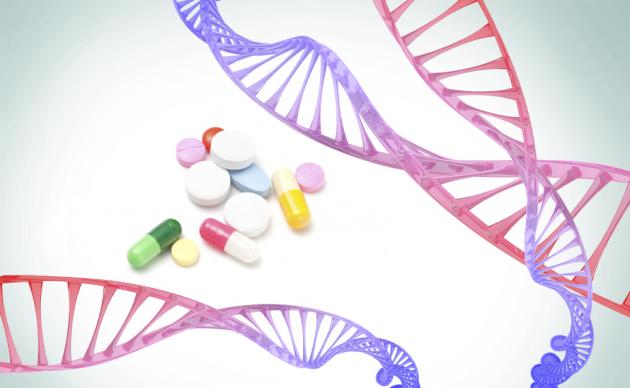Genomic analysis tells right dosage to improve efficacy, reduce side effects
Koreans with specific gene types can show higher efficacy and bigger by-effects concerning certain drugs, a recent study shows.
It has been known people suffering from the malfunction of specific liver enzymes or gene mutation in drug transporters experience the rise of blood concentration of medications when they take some antidepressants or gastric ulcer treatments.
This is the first time, however, researchers have confirmed it through clinical trials of Koreans, the Ministry of Food and Drug Safety said Wednesday.

More specifically, Koreans with degraded liver enzymes of CYP2C19 and CYP2D6 see their blood concentration of drugs rise when they take Amitriptyline and Omeprazole, the ministry said based on the experiments by its affiliated agency, National Institute of Food and Drug Safety Evaluation.
Also, people with a genetic mutation in drug transporter SLCO1B1 showed 1.4 times higher efficacy than usual when they use dyslipidemia treatment Simvastatin, it said.
The latest finding indicates both effectiveness and side effects can be enhanced for people with particular genetic mutation even if they take same doses of these medicines, ministry officials said, adding it would help doctors prescribe what amount of drugs to which patients.
Previously researchers conducted trials on subjects from around the world, not focusing on Koreans or people with specific genotypes.
This time, however, they performed tests exclusively on Koreans and found that individuals with particular genotypes and malfunctioning liver enzymes that do not break down the three drugs properly in the bloodstream have 1.4 to 2 times higher drug concentration than Westerners who took the same doses of these drugs.
Increased drug concentration may improve not only drug efficacy but also side-effects, such as dry mouth or lower blood pressure. Experts say there are roughly five Koreans with malfunctioning liver enzymes for every Westerner with the same problem, making the findings more meaningful for Korean medical treatment.
Tailored medical treatment based on individual genotype and physical makeup is the solution, the experts say. In the case of the three drugs, the ministry suggests lowered drug dosage for Koreans than Westerners on average and personalized medicine.
Notably, people who had compromised CYP2C19 and CYP2D6 liver enzymes showed 1.5 to two times higher drug concentration than healthy subjects when they took Amitriptyline, a depression drug, in the clinical trial. People who had malfunctioning CYP2D19 liver enzymes showed drug concentrations two times higher than those of normal subjects and maintained stomach acidity levels above pH4 for twice as long when they took Omeprazole, a drug for gastric ulcer pain.
Clinical trials also found that people with a mutated SLCO1B1 enzyme had 1.4 higher Simvastatin (dyslipidemia drug) concentrations than those of normal subjects.
The clinical trials included 24 Koreans each for Amitriptyline and Omeprazole, and 26 Koreans for Simvastatin. Researchers extracted their DNA, amplified genes and analyzed DNA sequencing of each subject.
The results of this study were published in three international journals, including Clinical and Translational Science, and won patent as a method to measure liver metabolic enzyme genotypes accurately.

